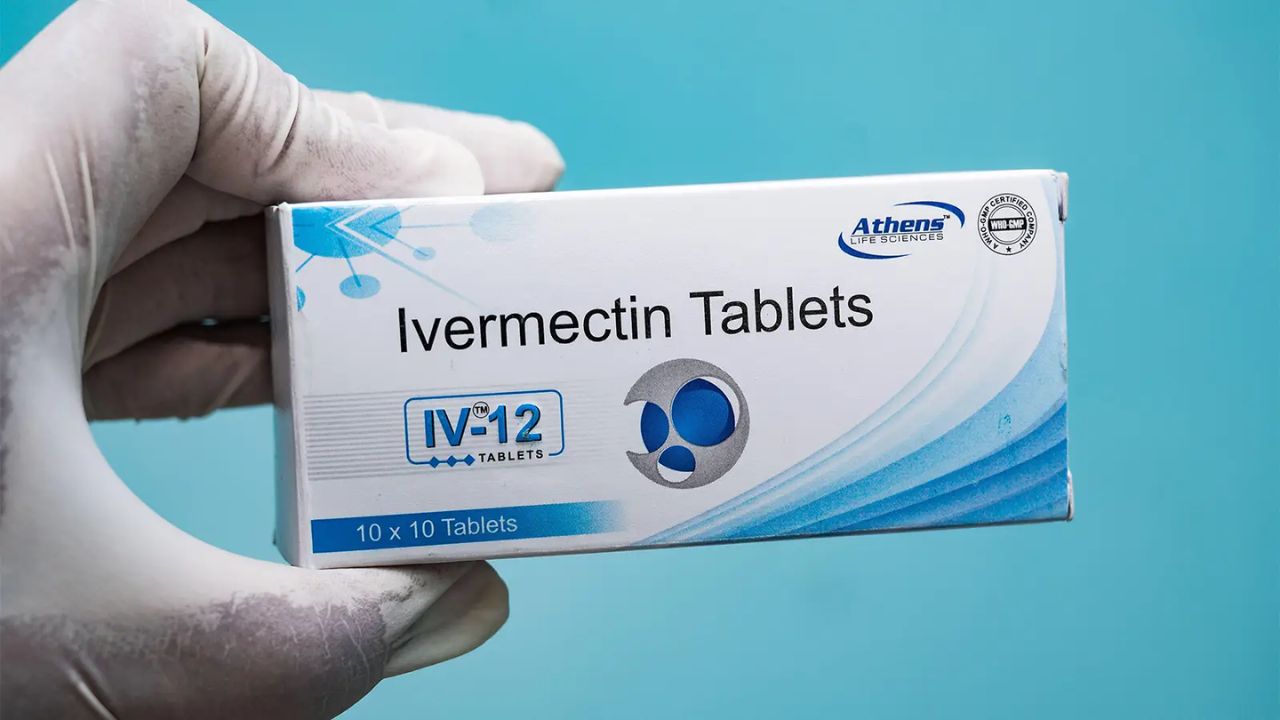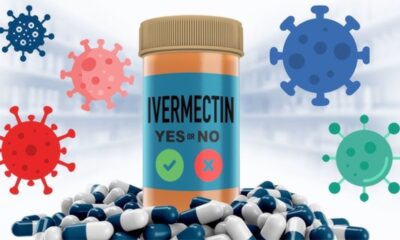Business
Ivermectin: The Medication That Changed Global Health

Ivermectin, a groundbreaking medication, has significantly impacted human and animal health for decades. Originally developed to combat parasitic infections, this drug has become a cornerstone in managing diseases across the globe. But what exactly makes ivermectin so special? Its versatility, affordability, and broad-spectrum applications have positioned it as a game-changer in medicine.
What is Ivermectin?
Ivermectin is an FDA-approved antiparasitic drug that has been used since the late 1970s. It belongs to the avermectin family of compounds, which are derived from Streptomyces avermitilis, a soil-dwelling bacterium. Initially developed as a veterinary medication, ivermectin gained approval for human use after demonstrating its effectiveness in treating parasitic infections like river blindness and strongyloidiasis.
In essence, ivermectin works by paralyzing and killing parasites. It targets the nervous system of these organisms, disrupting their ability to survive and reproduce, ultimately curing the infection in humans and animals.
How Was Ivermectin Discovered?
The discovery of ivermectin was nothing short of a scientific breakthrough. Japanese microbiologist Dr. Satoshi Ōmura and American scientist Dr. William C. Campbell discovered the compound in the 1970s. Their work earned them the Nobel Prize in Physiology or Medicine in 2015 for its global impact.
The discovery stemmed from natural soil samples containing Streptomyces avermitilis, which demonstrated antiparasitic properties. These findings paved the way for ivermectin to revolutionize parasitic disease treatment worldwide.
Key Medical Uses of Ivermectin
Treating River Blindness (Onchocerciasis)
One of ivermectin’s most celebrated uses is treating onchocerciasis, commonly known as river blindness. This debilitating condition, caused by the parasite Onchocerca volvulus, affects millions in sub-Saharan Africa. Ivermectin disrupts the lifecycle of the parasite, alleviating symptoms and preventing blindness.
Management of Strongyloidiasis
Ivermectin is highly effective in treating strongyloidiasis, an intestinal infection caused by the Strongyloides stercoralis worm. The medication eliminates the worms, providing relief from symptoms like abdominal pain, diarrhea, and skin rashes.
Scabies and Head Lice Treatment
Ivermectin is a go-to remedy for scabies, a skin condition caused by mites. Both oral and topical formulations are used to eradicate the parasites responsible for this itchy, uncomfortable condition. Similarly, ivermectin helps combat head lice infestations, offering a quick and effective solution.
Other Parasitic Infections
Ivermectin is also used to treat other neglected tropical diseases, such as:
- Lymphatic Filariasis: Commonly known as elephantiasis, it causes severe swelling of limbs.
- Mansonelliasis: A lesser-known worm infection prevalent in tropical regions.
Veterinary Applications
Ivermectin plays a vital role in veterinary medicine, protecting livestock and pets from parasitic infections. It is used to treat:
- Heartworm in dogs
- Intestinal worms in cattle, sheep, and horses
- External parasites like ticks, mites, and fleas
Its use in animal health ensures productivity in agriculture, safeguarding food supplies and economic stability.
Controversial Uses of Ivermectin
Ivermectin and COVID-19
During the COVID-19 pandemic, ivermectin gained attention for its purported antiviral properties. Some studies suggested that it might inhibit viral replication in laboratory settings, sparking widespread discussions.
However, major health organizations, including the World Health Organization (WHO) and the FDA, emphasized that ivermectin is not an approved treatment for COVID-19. Clinical trials found insufficient evidence to support its efficacy, and misuse led to safety concerns.
Public Perception and Media Debate
The debate surrounding ivermectin created division among medical professionals, policymakers, and the public. While some advocated for further research, others criticized misinformation and off-label use. The controversy underscored the importance of evidence-based medicine and the dangers of self-medication.
How Safe is Ivermectin?
Side Effects
When used appropriately, ivermectin is considered safe and well-tolerated. Common side effects include:
- Dizziness
- Nausea
- Skin rash
- Muscle pain
In rare cases, adverse reactions such as neurological symptoms or allergic reactions can occur. These are often linked to overdosing or misuse.
Dosage and Precautions
It is crucial to follow medical guidance when taking ivermectin. Dosage depends on factors like weight, age, and the specific condition being treated. Self-medication or using veterinary formulations can pose serious health risks.
Safety in Vulnerable Populations
Ivermectin has been deemed safe for children over 15 kg, but caution is advised in pregnant and breastfeeding women. Medical consultation is necessary to assess risks and benefits.
Global Impact of Ivermectin
Eliminating Neglected Tropical Diseases
Ivermectin has been a cornerstone of public health initiatives in developing regions. Programs like Merck’s Mectizan Donation Program have provided free ivermectin treatments to millions, significantly reducing parasitic disease burdens.
Improving Quality of Life
By eliminating debilitating conditions like river blindness and scabies, ivermectin has improved the quality of life for countless individuals. Communities once plagued by parasitic infections now thrive, highlighting the medication’s far-reaching benefits.
How Does Ivermectin Work?
Ivermectin targets the nervous system of parasites by binding to specific ion channels, causing paralysis and death. Its unique mechanism of action ensures effectiveness against a broad range of parasites without harming the host.
Resistance Concerns
Despite its success, growing resistance to ivermectin in some parasites poses a challenge. Ongoing research focuses on understanding resistance mechanisms and developing alternative therapies.
The Future of Ivermectin
Research on New Applications
Researchers are exploring ivermectin’s potential in treating viral diseases, cancers, and inflammatory conditions. Preliminary studies show promising results, but further clinical trials are needed.
Sustainable Use in Public Health
Ensuring the sustainable use of ivermectin is vital to combat resistance and maintain its efficacy. Public health programs must balance widespread access with responsible administration.
Ivermectin: A Modern Medical Miracle
The discovery and development of ivermectin represent a monumental achievement in medicine. Its impact on global health cannot be overstated—from treating parasitic infections to improving animal welfare. While controversies exist, ivermectin’s proven benefits remain undeniable.
The future of ivermectin lies in continued research, responsible use, and public awareness. By understanding its true potential and limitations, we can harness its power to combat diseases and improve lives worldwide.
Also Read: Influencersginewuld: Revolutionizing the Influencer Marketing Landscape
FAQs
What is ivermectin primarily used for?
Ivermectin is primarily used to treat parasitic infections such as river blindness, strongyloidiasis, scabies, and head lice.
Can ivermectin treat COVID-19?
No, ivermectin is not an approved treatment for COVID-19. Major health organizations recommend against its use without clinical evidence.
Is ivermectin safe for humans?
Yes, when used under medical supervision, ivermectin is safe. However, misuse or overdose can lead to serious side effects.
How does ivermectin work in the body?
Ivermectin works by paralyzing and killing parasites through its action on specific ion channels in their nervous system.
Can ivermectin be used on animals?
Yes, ivermectin is widely used in veterinary medicine to treat internal and external parasites in animals like cattle, dogs, and horses.
Are there any side effects of ivermectin?
Common side effects include dizziness, nausea, and skin rashes. Serious adverse effects are rare but can occur with misuse.

Business
Soundproof Office Booths: The Modern Solution for Privacy and Productivity in 2025

Explore how Soundproof Office Booths are revolutionizing workplaces in 2025 by boosting privacy, focus, and hybrid work efficiency.
In today’s dynamic work environments, open-plan offices and hybrid work models have become the norm. While these layouts promote collaboration, they often compromise on privacy and concentration. Enter the Soundproof Office Booth—a revolutionary solution designed to provide quiet, private spaces within bustling office settings.
Soundproof booths are more than just a passing trend—they’re a practical solution to the increasing demand for focused workspaces in today’s offices. The global indoor soundproof booth market is expected to hit $601 million by 2025, with a CAGR of 8.7% from 2025 to 2033, highlighting the growing recognition of their importance in the modern workplace.
Benefits of Soundproof Office Booths
1. Enhanced Privacy in Open Offices
While open-plan offices encourage collaboration, they often fall short when it comes to providing spaces for private conversations or deep focus. Soundproof booths help fill this gap by offering quiet, enclosed areas where employees can hold meetings, make calls, or work without interruptions.
2. Reduction in Workplace Distractions
Research shows that nearly 80% of employees struggle to stay focused for even an hour, with 11% reporting distractions every five minutes. Soundproof booths serve as sanctuaries, minimizing noise and interruptions, thereby boosting productivity.
3. Flexibility and Adaptability
Modern soundproof booths are designed to be both modular and mobile, making them flexible enough to fit a variety of office layouts. Whether you need a dedicated quiet zone for concentration or a private space for team discussions, these booths can be easily reconfigured to meet the changing demands of the workplace.
4. Support for Hybrid Work Models
As hybrid work becomes the norm, employees are dividing their time between home and the office. Soundproof booths offer a consistent, distraction-free space that supports smooth transitions and maintains productivity across both environments.
Soundproof Cabins Provide for Uninterrupted Virtual Meetings
With the rise of hybrid work environments, clear communication is more crucial than ever and that’s where soundproof cabins truly shine. These purpose-built spaces effectively block out external noise, creating a quiet and private environment ideal for virtual meetings, video calls, and webinars. Whether you’re in a bustling office or a shared co-working space, soundproof cabins minimize distractions like chatter, office equipment, or background noise, ensuring that your voice is heard clearly and without interruption. As remote collaboration becomes the norm, these cabins help maintain professionalism and focus, making every virtual interaction more efficient and stress-free.
Key Features to Consider
-
Acoustic Performance: Look for booths with high acoustic ratings (Class A or B) to ensure effective sound insulation .
-
Lighting and Power Accessibility: Integrated lighting and power outlets enhance functionality, allowing users to work efficiently within the booth.
-
Size and Capacity: Choose a booth size that fits your space and meets your team’s needs, whether for individual focus or group collaboration.
Market Trends and Growth
The demand for soundproof office booths is steadily increasing as more companies seek quiet, private workspaces within open office layouts. According to market projections, the global office soundproof booth market is expected to reach around USD 2.68 billion by 2033, with a CAGR of 7.2% between 2024 and 2033.
This upward trend is largely driven by the growing adoption of hybrid work models, a rising need for effective noise reduction, and a stronger focus on enhancing employee comfort and well-being.
FAQs
Q1: Are soundproof office booths suitable for small offices?
Yes, many soundproof booths are designed with compact footprints, making them ideal for small office spaces. Their modular nature allows for easy integration without major renovations.
Q2: Can these booths be customized?
Absolutely. Many manufacturers offer customizable options, including size, color, interior features, and technological integrations, to match specific office aesthetics and requirements.
Q3: How effective are these booths in reducing noise?
High-quality soundproof booths with Class A or B acoustic ratings can significantly reduce external noise, providing a quiet environment conducive to focused work.
Conclusion:
In the evolving landscape of modern workspaces, Soundproof Office Booths have emerged as essential tools for enhancing privacy, reducing distractions, and supporting hybrid work models. Their adaptability, combined with the growing emphasis on employee well-being and productivity, positions them as valuable investments for forward-thinking organizations.
READ ALSO:
What is an e-Check? A Simple Guide
Business
What is an e-Check? A Simple Guide

In addition to other forms of online payment, many businesses also accept e-checks from customers. Here’s an overview of what an e-check is and how it works.
What is an e-check?
An e-check is a straightforward online payment. In European countries like Germany, they work through the SEPA direct debit network. When paying by e-check, the money is withdrawn from the payer’s checking account and deposited directly into the payee’s checking account. Companies can sign up for a SEPA merchant account to collect these electronic payments for goods and services.
To confirm an e-check payment, the customer must authorize the transaction by accepting a website’s terms and conditions or signing a contract.
How does an e-check work?
Like a paper check, an e-check serves as a transfer receipt from one bank account to another. However, the process is much more efficient than a paper check because it is completely electronic. Processing an e-check involves three main steps:
- Authorization request
As mentioned above, the customer must authorize the payment for the transaction to proceed. This can be done by mobile phone, with a signed order form or online.
- Payment information
Once the payment is authorized by the customer, the business can set up a payment. The details are entered into a payment processing system, whether it is a one-time payment or a recurring payment.
- Confirmation of payment
Once the payment information is entered, the company can submit the details to start the transaction through the SEPA system. At this point, the money is withdrawn from the customer’s current account and deposited into the company’s account.
After the SEPA transaction has begun, e-checks typically take between three and five business days to process.
Which payments can e-checks be used for?
When it comes to e-checks, there are no limits. Whether your business offers products or services, they can be paid for electronically with an e-check.
Unlike in some European countries, checks and e-checks are among the most popular payment methods in the USA . Accordingly, this type of payment is a popular option for more expensive items such as mortgage payments, monthly rent or car loan repayments and legal fees.
Recurring payments can also be set up with e-check, making it a good option for subscription fees or memberships. Instead of submitting a paper check every month, subscribers can simply set up an automatic debit from their bank account via e-check.
What are the advantages of e-checks?
Compared to paper checks, e-checks are processed faster because the transaction is completed online. They also reduce paper waste. Businesses and customers receive instant electronic payment confirmation in the form of an email or an easy-to-save PDF file.
From a financial perspective, e-check processing fees are usually lower than credit card payment fees. It’s best to compare processing fees before deciding on the best payment method, as they vary by location and type of business.
What information is required to process e-checks?
To submit an e-check, the payee must have a registered SEPA merchant account.
In the past, companies could only open a merchant account directly through their bank. The hurdles to obtaining a merchant account this way were, and for the most part still are, high. Companies must prove that they have significant capital, a solid business plan and a professional online presence. The bank may also require a large deposit to set up an account. The entire process may take a couple of weeks.
Today, a variety of payment service providers offer their own merchant accounts or have relationships with banks that allow them to help businesses open a merchant account with a bank.
Merchants must also authorize the payment – either online or via a recorded telephone conversation.
E-checks are a convenient way to send and receive payments, combining the efficiency and security of electronic financial transactions with the familiarity of paper checks. It’s worth considering whether this payment method is right for your business or whether you want to take advantage of the benefits of direct debit.
Read Also:
Prince Narula and Digital PayPal: Revolutionizing Fintech through Celebrity Influence
Business
Prince Narula and Digital PayPal: Revolutionizing Fintech through Celebrity Influence

In the rapidly evolving digital landscape, the fusion of entertainment and technology has become a powerful catalyst for change. A prime example of this synergy is the collaboration between Indian reality TV star Prince Narula and Digital PayPal. This partnership aims to redefine financial transactions in India by leveraging celebrity influence to promote digital payment solutions.
Prince Narula: From Reality TV to Digital Advocacy
Prince Narula, renowned for his victories in popular Indian reality shows such as “Bigg Boss” and “MTV Roadies,” has successfully transitioned from television fame to becoming a significant digital influencer. His dynamic personality and entrepreneurial spirit have enabled him to build a substantial following among millennials and Gen Z audiences. Recognizing the potential of digital platforms, Prince has ventured into various online enterprises, including fitness and fashion brands, further solidifying his presence in the digital realm.
Digital PayPal: A Leader in Fintech Innovation
Digital PayPal has established itself as a global leader in providing secure and efficient digital payment solutions. With a commitment to innovation, the platform offers a range of financial services designed to cater to the diverse needs of users worldwide. From seamless online transactions to cryptocurrency exchanges, Digital PayPal continually adapts to the evolving fintech landscape, ensuring users have access to cutting-edge financial tools.
The Synergy: Prince Narula Digital PayPal Collaboration
The partnership between Prince Narula and Digital PayPal represents a strategic alliance aimed at enhancing the adoption of digital payment solutions in India. By combining Prince’s widespread influence with Digital PayPal’s technological expertise, this collaboration seeks to:
-
Enhance Accessibility: Simplify the user experience to make digital payments more accessible to a broader audience, including those in rural and underserved regions.
-
Build Trust: Utilize Prince Narula’s credibility to address common misconceptions and build trust in digital financial services.
Key Features of Prince Narula Digital PayPal
The collaboration has introduced several user-centric features designed to streamline financial transactions:
Customized Payment Links:
Users can create personalized payment links, facilitating quick and easy transactions for businesses and individuals alike.
Comprehensive Business Tools:
The platform offers robust invoicing, payment tracking, and reporting features, enabling businesses to manage their finances efficiently.
Reward Programs:
Incentives such as cashback offers and loyalty programs are available to encourage user engagement and satisfaction.
Advanced Security Measures:
Implementing sophisticated encryption and two-factor authentication ensures the safety and privacy of user data and transactions.
Impact on Digital Payment Adoption in India
Since the launch of the Prince Narula Digital PayPal initiative, there has been a notable increase in the adoption of digital payment methods across various demographics. Prince’s active promotion through social media campaigns and public engagements has played a pivotal role in demystifying digital transactions, making them more approachable and trustworthy for the general public.
Challenges and Future Prospects
Despite the positive momentum, certain challenges persist, including technical issues related to bank account linking and occasional transaction delays. Addressing these concerns is crucial for sustaining user trust and ensuring the long-term success of digital payment systems in India.
Looking ahead, the Prince Narula Digital PayPal collaboration is poised to expand its reach by introducing more localized services and educational programs. By continuously adapting to user feedback and technological advancements, this partnership aims to solidify its position as a cornerstone of India’s digital financial ecosystem.
Conclusion:
The fusion of Prince Narula’s celebrity influence with Digital PayPal’s fintech innovation exemplifies how strategic collaborations can drive significant societal shifts. This partnership not only promotes the adoption of digital payments but also contributes to the broader goal of financial inclusion in India.
Prince Narula has played a significant role in promoting PayPal and digital payment solutions in India, leveraging his influence to educate and encourage consumers. However, there is no official confirmation of him holding the title of brand ambassador for PayPal.
Read Also:
-

 More6 months ago
More6 months agoThe Rise of Lillienu: Transforming Technology and Creativity
-

 Fashion6 months ago
Fashion6 months agoUnveiling the Secrets of Ceylan Eye Cream Reviews
-

 More6 months ago
More6 months agoThe Rise of Artofzio: Transforming Creativity in the Digital Era
-

 More6 months ago
More6 months agoSwindle Trilogy Website: A Must-Visit Hub for Book Lovers
-

 More6 months ago
More6 months agoInfluencersginewuld: Revolutionizing the Influencer Marketing Landscape
-

 More6 months ago
More6 months agoCeylan Eye Cream Reviews: Is It Worth the Hype?
-

 News5 months ago
News5 months agoThe Shocking Details of the Scott Levin 2011 Truck Accident
-

 More6 months ago
More6 months ago127.0.0.1:62893 Explained: Troubleshooting Common Errors

